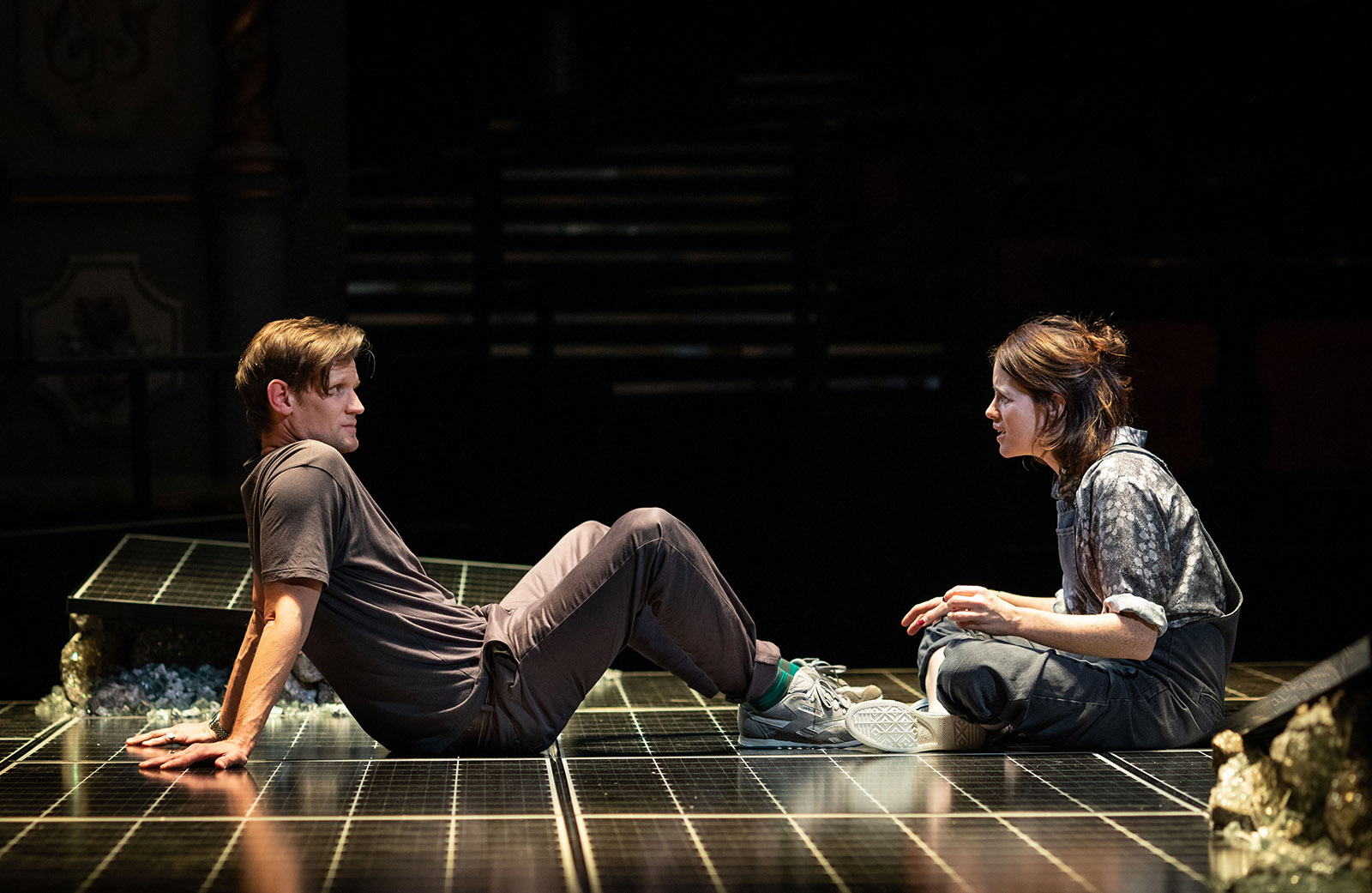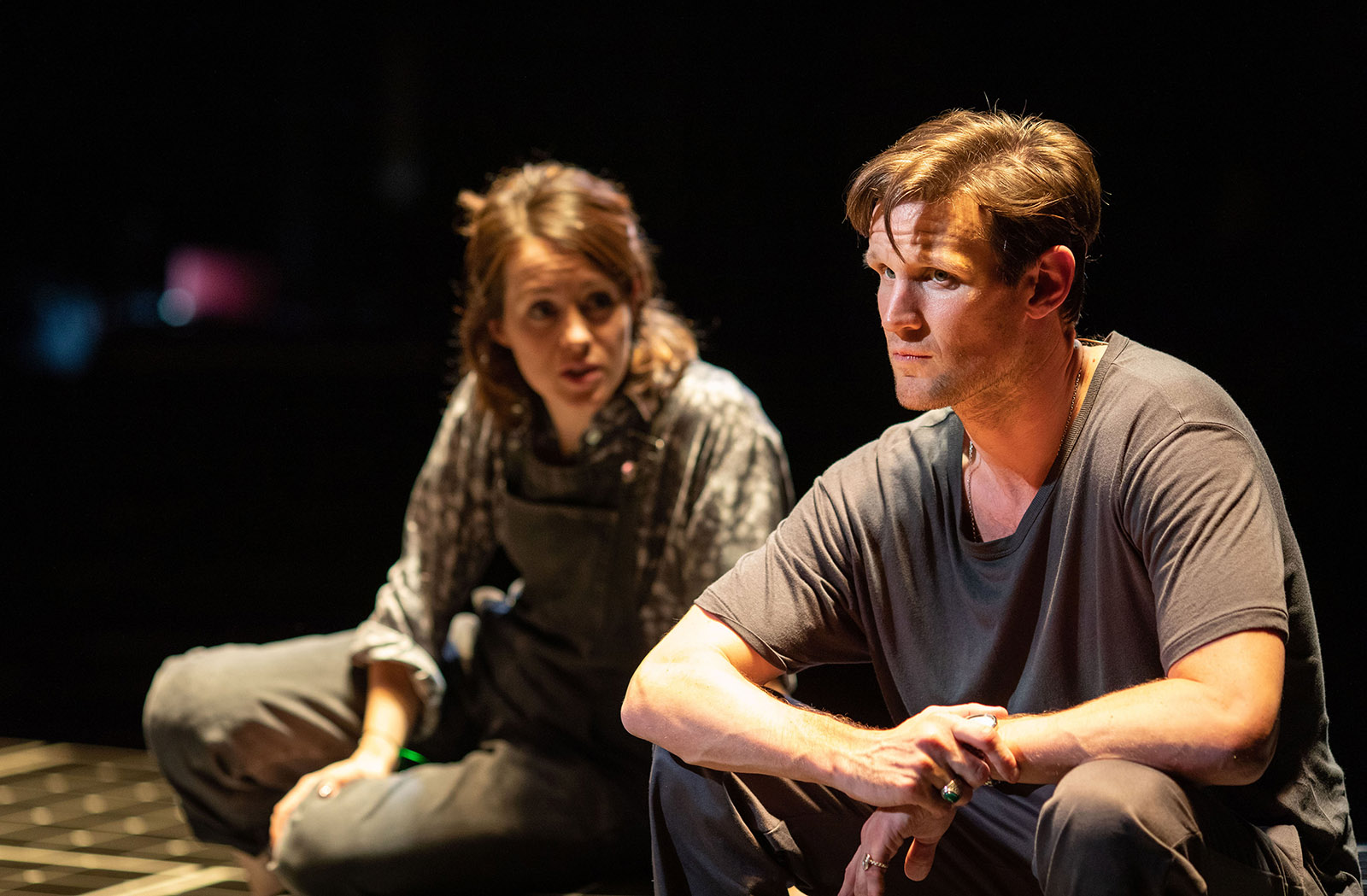Forget Brexit, for a moment. Forget Westminster. In London this month, the most significant moment of British political theatre occurred on a poorly lit subway platform shortly before sunrise on Thursday, October 17.
Morning commuters crowded the platforms as a train pulled into Canning Town, a hub of the borough of Newham. (More than 70 percent of the population in this district of East London are non-white and more than a third live in poverty.) Suddenly, a handful of protesters—white, middle-class in appearance—emerged with ladders and scaled the sides of the train, taking positions on its roof and forcing the train to stay stationary at the platform.
The crowd of commuters were stranded, unable to get to work. For many, that might mean docked wages. Tempers rose. Eventually, with no sign of any police officers, some commuters took matters into their own hands, dragging protesters from the roof of the train, even kicking and beating them for the few seconds it took before railway staff rushed in and the police arrived. Everyone was filming on their mobile phones. Within hours, everyone in Britain, it seemed, had seen the footage.
This was the moment when Extinction Rebellion, the climate justice movement that has been leading a mass campaign of civil disobedience and disruption in Britain, began to lose the public. The campaign, which demands radical change in the face of “climate emergency,” has been a popular cause among the environmentally-minded and well-meaning, especially while it focused on disrupting the London’s motor traffic and airports—self-evident sources of pollution. But from the beginning, there have been complaints that Extinction Rebellion’s predominantly white activists were insensitive to the effect of their demands on working-class people and people of color. This criticism stemmed both from their previous disruption of mass transit systems, including public buses, and from their repeated exhortations to activists to get themselves arrested—with Extinction Rebellion’s guidance materials for activists accused of playing down the specific risks of police mistreatment faced by activists of color. (Or as one prominent critic put it: “Prison is not—and I cannot stress this enough—a yoga retreat.”)
The decision by a sub-group of activists to target Canning Town, as well as the nearby Shadwell and Stratford stations, has only entrenched that criticism. Prominent figures in Extinction Rebellion briefed journalists that the majority of activists had opposed the action, but these claims have so far made little impact. It didn’t help that the movement’s Twitter account had initially praised the Canning Town protesters by comparing them to the African-American icon of the Civil Rights movement Rosa Parks.
Before this misjudgment, Extinction Rebellion’s greatest successes had come from its instinctive understanding of public theatre. The red-robed “Invisible Circus,” a convoy of silent mimes processing like a grief-struck Greek chorus, has held the rapt attention of Londoners across the city’s streets. This is agitprop for the Instagram age.
It is surprising then, that London’s theatre scene—which is genuinely diverse and often radical—hasn’t yet produced a major artistic response to this moment of protest. After all, addressing climate change is firmly on the theatre world’s agenda, with leading institutions like the Royal Shakespeare Company announcing that it would end its sponsorship partnership with BP, and the National Theatre severing its similar ties with Shell. But the artistic response has lagged behind the institutional moves.
Part of the problem is that the Extinction Rebellion has emerged rapidly, while programming at the major theatres is often mapped out a year in advance. It was serendipity, therefore, that three days after the Canning Town protest, two of Britain’s glitziest television actors took to the stage at one of London’s ritziest theatres to open a play about climate anxiety—specifically, about the agonizing of two white middle-class millennials. The Old Vic’s production of Lungs stars Claire Foy and Matt Smith, a pairing familiar to audiences in Britain and America for their roles as the young Queen and her consort, Prince Philip, in the hit Netflix series The Crown. Here, Foy and Smith play an ordinary couple wrestling with whether to bring a baby into the world, the ordinariness of their dilemma emphasized by the namelessness of their characters—given in the playbill simply as M (man) and W (woman). Is having a child ecologically responsible in the over-populated twenty-first century?
“I could fly to New York and back every day for seven years and still not leave a carbon footprint as big as if I have a child,” Foy’s character tells her partner. So should that stop her?
Advertisement
Duncan Macmillan, the author of Lungs, is one of the most interesting playwrights working in Britain today. American audiences may know him from People, Places and Things, a bleach-bright drama about a young female addict that transferred from London to New York’s St. Ann’s Warehouse in 2017. (The show was a career-maker for the actress Denise Gough, who went on to star opposite Keira Knightly in the 2018 film Colette and has landed a major role in next year’s Game of Thrones prequel.) Macmillan’s adaptation of Orwell’s 1984, created with the director Robert Icke, was also a hit on both sides of the Atlantic over several years. But it was his free translation of Ibsen’s Rosmerholm, performed with Hayley Atwell earlier this year at the Duke of York’s Theatre, that best demonstrated his ear for the contemporary within the perennial. With his characteristic talent for fresh dialogue, Macmillan wrought from Rosmerholm, one of Ibsen’s less performed plays, a darkly resonant commentary on the twenty-teens’ clashes between principle and populism.
Where Rosmerholm depicted ideological struggles in a small Norwegian town during the industrial revolution, Lungs feels as though it could have been written about a pair of Extinction Rebellion activists. At the beginning of the play, W is a graduate student; M is an aspiring musician working in a record shop, but then takes a job as “the newest cog in the corporate machine” to prepare for the financial pressures of parenthood. They are profoundly ethical in their concerns, but, at the same time, infuriatingly self-absorbed. (“We are we are we are good people yes we are. Good. Are we?,” rambles Foy’s ‘W.’ Like a caricature of an Extinction Rebellion activist, she even wears dungarees.)
In proof of Macmillan’s prophetic touch, however, this production is a revival: Lungs premiered almost simultaneously in Sheffield and Washington, D.C., in 2011. In 2014 and 2015, another production, by the touring company Paines Plough, which champions British new writing, charmed audiences at the Edinburgh Festival. Against today’s backdrop of increasingly catastrophizing climate anxiety, the play feels distinctly less funny, less light, than it did in that production.
Lungs is as much a play about a relationship—and shared decision making—as it is about climate change. But the gravity of the climate crisis is always present. When Katie Mitchell directed the play in Berlin in 2013, a digital counter on stage displayed the growth of the world’s constantly increasing population in real time, and the actors were forced to generate power for their own stage lights by riding on-stage bicycles attached to a dynamo. Here at the Old Vic, things are much more low-key. In Rob Howell’s set design, the two actors inhabit a blank space, devoid of furniture or dressing, except for two ruptured rock formations just breaking through the stage’s black floor. Cracks in the earth are always just a moment away.
The two bankable stars are always enjoyable, but Foy shines brighter. The Old Vic’s artistic director Matthew Warchus has set the two players in the round, so we spend half the time looking at the back of one or the other actor, as they circle warily around each other. This staging appears to present no problem for Foy, who can perform an emotion with a twitch of her shoulder-blade, but Smith—despite his years on the small stage-sets of Dr. Who—has less drama-school training and it shows. And it would have been lovely, too, to see Smith break out of type-casting; his character here is not much of a stretch, with its flashes of charming mischief and grouchy entitlement, from his role in The Crown. (In contrast, Foy’s neurotic W, complete with verbal diarrhea, is a world away from the reserve and self-control she embodied as Elizabeth.) It’s frustrating, too, that Warchus’s production jumps from scene to scene in these couple’s lives with nary a beat of stage punctuation. It’s an approach which adds urgency, but rarely clarity.
Despite that, Lungs still sparkles, thanks largely to the snap of Macmillan’s dialogue—“You hate your parents.” “That’s not true.” “OK, I hate your parents.” So we laugh, we cry. We empathize.
What we don’t do is learn much about climate change. (The Old Vic seem to have missed an opportunity to stage a reading this season of 2071, Macmillan’s dramaturgical adaptation of the writings of the climate change scientist Chris Rapley.) That is partly because Macmillan’s concern here is with the choices people make, not the policies of governments. Outside the theatre, Extinction Rebellion is trying to encourage Britons to make the same kind of self-denying choices, but its campaign of disruption runs the risk of seeming more coercive than persuasive.
Advertisement
The Old Vic is just twenty minutes’ walk from Houses of Parliament in Westminster, where Extinction Rebellion plans to continue its campaign to disrupt Britain’s political life in the coming weeks. After the Canning Town incident, public good will may continue to drain away. At the heart of the movement’s public relations problem is a dissonance that lies between the comfortable, child-friendly images projected on social media by activists documenting cheery sit-ins and the more hectoring demands for greater public self-denial issued by defenders of Extinction Rebellion’s most refractory actions. If it is to regain the initiative, the movement will need to refocus on the soft and friendly. Paradoxically, if theatre is to respond adequately, it may need to tap deeper into Extinction Rebellion’s more moralizing instincts. Unlike the protagonists of the Canning Town protest, theatre needs to get tougher and give us all less of an easy good time.
Lungs, directed by Matthew Warchus, is playing at the Old Vic, London, through November 9.






